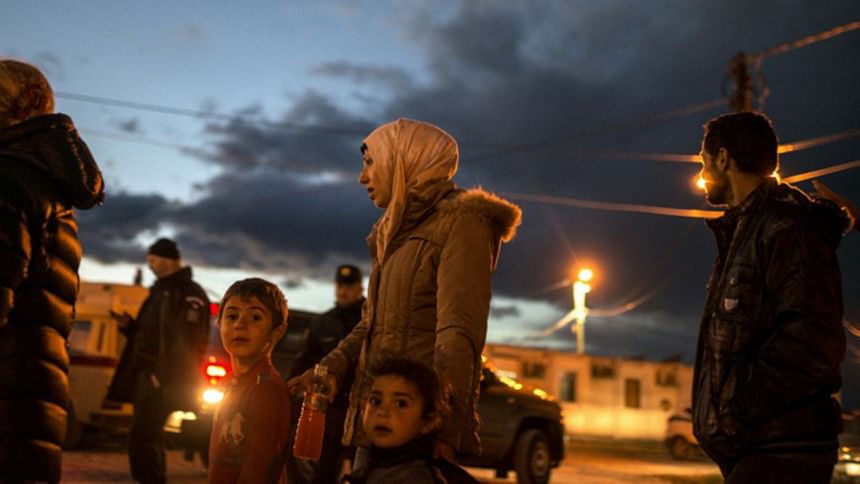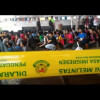New Europe migrant limits face scrutiny

EU ministers meet in Brussels later amid warnings the migrant crisis could threaten the bloc's survival.
Austria and Balkan nations have agreed measures to restrict numbers, drawing criticism from Greece, where thousands have been left stranded after Macedonia blocked entry to Afghans.
Meanwhile Hungary has announced a referendum on whether to accept mandatory quotas of migrants.
More than 100,000 migrants have reached Europe so far this year.
In Brussels, EU interior ministers will hear plans drawn up by Austria and eight Balkan countries that include fingerprinting all entrants and turning back anyone without a passport or holding fake documents.
The countries have also pledged to accept only those they deem to be in need of protection, which has already been interpreted by some governments as meaning only Syrians and Iraqis.
Austrian Interior Minister Johanna Mikl-Leitner described the measures as a "chain reaction of reason" and warned that the crisis could threaten the EU's survival if it was not brought under control.
But the plans drew sharp criticism from Greece, which threatened to block all decisions at an upcoming EU migration summit if member states did not agree to take in quotas of migrants.
Greek Prime Minister Alexis Tsipras said his country was turning into a "permanent warehouse of souls" and should not be left to deal with the crisis alone.
"From now on, Greece will not agree to deals if we do not secure the mandatory sharing of the burden and responsibility proportionally among member states," Tsipras said.
Last September, EU ministers agreed plans to relocate 120,000 migrants from Italy, Greece and Hungary to other EU countries.
But the majority vote decision was opposed by Romania, the Czech Republic, Slovakia and Hungary.
On Wednesday Hungary announced it would hold a referendum on accepting mandatory EU migrant quotas.
Hungarian Prime Minister Viktor Orban stressed that the quotas "could redraw Europe's cultural and religious identity".
The referendum is expected to be held in the autumn, subject to parliamentary approval.
In separate developments:
--A French judge is to decide whether to implement or postpone an eviction order for up to 1,000 migrants under plans to demolish part of the Calais "Jungle" camp
--Belgium has detained 80 migrants on the French border since imposing controls on Monday evening, officials say. Many of the migrants are thought to have come from Calais
--Germany expects to accommodate 3.6m migrants by 2020, German media reported, quoting internal government estimates
--A special flight from Germany carrying 125 deported Afghans has arrived in Kabul, as Germany takes steps to reduce the number of people seeking asylum
More than 100,000 migrants have arrived in Greece and Italy so far this year, the International Organization for Migration (IOM) said.
More than 400 migrants died attempting to make the journey during the same period, the IOM said.

 For all latest news, follow The Daily Star's Google News channel.
For all latest news, follow The Daily Star's Google News channel. 








Comments